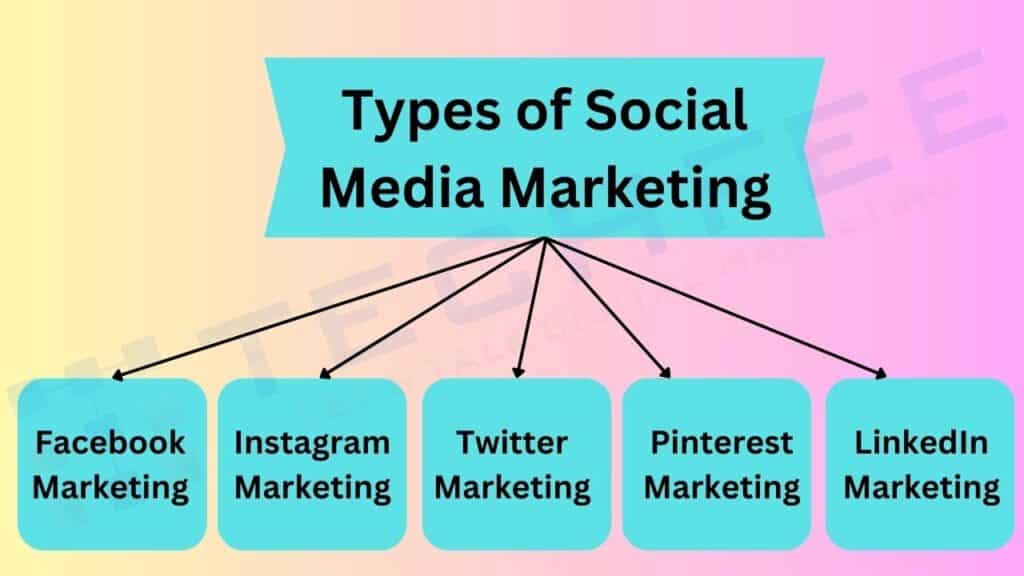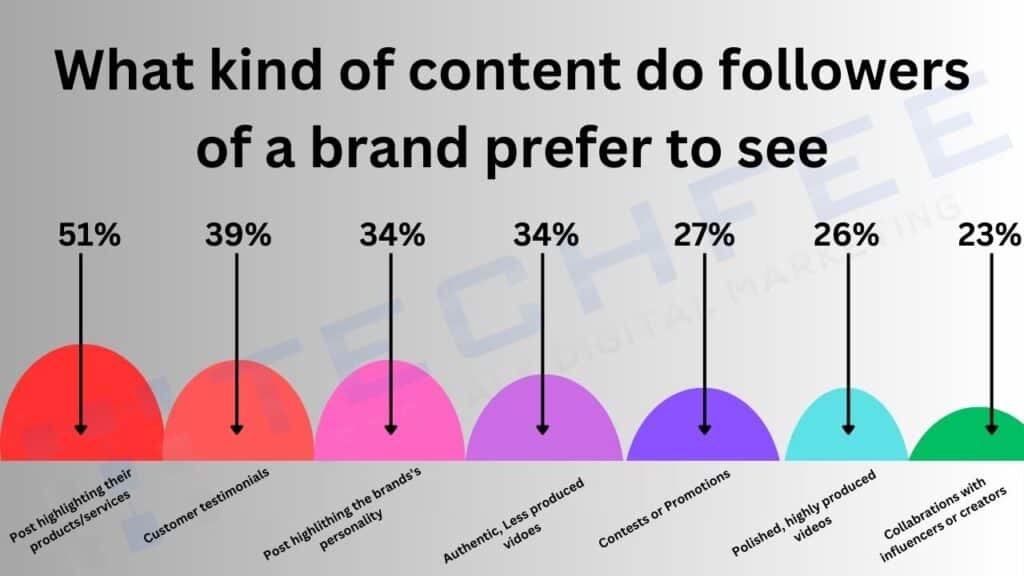In today’s digital age, social media has become essential for businesses to connect with their target audience, increase brand awareness, and drive sales. With the right social media marketing strategies, you can take your business to the top and succeed in your industry.
In this article I will discuss 17 social media marketing strategies to help you achieve your business goals.
From creating engaging content to leveraging influencers, we will provide actionable tips and insights to help you succeed on social media. Whether you’re just starting or looking to enhance your existing social media presence, these strategies for social media will help you achieve your goals and drive business growth.
What is Social Media Marketing?
Social media marketing promotes a brand, product, or service on various social media platforms. Recently, social media has become a unique platform for businesses to reach their target audience more personally.
The process of social media marketing involves creating content, engaging with followers, and using targeted advertising to increase brand awareness, drive traffic to the website, and, ultimately, increase sales.
By understanding social media marketing, businesses can connect with their audience more personally and build lasting relationships that lead to customer loyalty.
Any modern marketing strategy must incorporate social media marketing, a powerful tool to help businesses grow their brand.
Refraining from using social media marketing is a missed opportunity for businesses looking to expand their reach.
Why is Marketing Strategy in Social Media Important?

Social media marketing is crucial for businesses to establish and maintain a strong online presence. With social media platforms such as Facebook, Twitter, Instagram, and LinkedIn, businesses can effectively reach their target audience and engage with their customers.
Social media marketing offers a variety of benefits, including increased brand awareness, improved customer engagement and loyalty, and higher conversion rates.
In addition, by creating and sharing engaging content on social media, businesses can establish relationships with their customers and position themselves as industry leaders.
Moreover, effective social media marketing enables businesses to gather valuable data on their customers and target audience, which can be used to inform future marketing strategies. This makes it a powerful tool in today’s highly competitive marketplace.
All in all, social media marketing is an essential component of any business’s marketing strategy. It allows businesses to connect effectively with their customers and build their brand reputation while collecting valuable insights for future growth.
Types of Social Media Marketing

There are several types of social media marketing, each with its own unique benefits and strategies.
Social media marketing encompasses a range of strategies, each with unique advantages and techniques.
One popular approach is influencer marketing, which involves collaborating with social media influencers to promote a brand or product. This strategy can be powerful because it leverages the trust and authority influencers have built with their followers.
Another type of social media marketing is paid advertising, where businesses pay to promote their content or products on social media platforms. This technique allows them to target specific audiences based on demographics, interests, and behaviors.
Social media contests and giveaways are also prevalent. These campaigns drive user engagement by offering rewards in exchange for social media interactions such as likes, shares, and comments.
Finally, content marketing involves producing and sharing valuable content on social media platforms to attract and engage a target audience. This type of marketing can include blog posts, videos, infographics, and other informative or entertaining materials.
Businesses should consider various social media marketing techniques to achieve their goals and engage their target audience. Companies can develop effective and engaging campaigns that drive results by comprehending the different types of social media strategies and their advantages.
Best Social Media Marketing Platforms
With so many social media platforms available, choosing the right ones for your business can be overwhelming.
The most popular social media marketing platforms are Facebook, Instagram, Twitter, LinkedIn, Pinterest, and YouTube. Each platform offers unique features and benefits, so selecting the ones that align with your business objectives and target audience is crucial.
Facebook is a great platform to build a community and interact with customers.
On the other hand, Instagram is ideal for visual content and has a younger user base.
Twitter is excellent for real-time conversations and updates, while LinkedIn is perfect for B2B marketing and professional networking.
Pinterest is for sharing visual content such as images and videos.
YouTube is an excellent platform for video content and reaching a broad audience.
To succeed in social media marketing, choosing the right platform(s) to help you achieve your marketing goals is essential.
Understanding each platform’s unique features and benefits allows you to connect with your audience and drive business growth.
How to Develop Profitable Social Media Marketing Strategies
Developing profitable social media marketing strategies is crucial for businesses looking to increase their online presence and engage with their audience.
1. Define Your Target Audience And Know Them
Knowing who they are and what they like is essential to connect with your audience. By understanding their interests and behaviors, you can create content that will appeal to them and encourage them to interact with you.
It’s essential to identify your target audience so that you can tailor your messaging and marketing efforts to them. This approach will help you build a stronger connection with your audience and ultimately drive engagement with your brand or product.
2. Set Your Clear Goals
Setting clear goals should be crucial in social media marketing strategies to build your brand on social media successfully. Therefore, determining what you want to accomplish with your social media presence is essential.
This could include raising brand awareness, driving traffic to your website, boosting community engagement, or increasing leads and sales.
Clear goals help you stay on track and monitor your progress. Once you have established your goals, developing a strategy aligned with them is essential.
Your strategy should include the following:
- Selecting the appropriate social media platforms for your brand.
- Creating engaging content that appeals to your target audience.
- Monitoring your performance to make necessary adjustments.
- By setting clear goals and implementing a strong marketing strategy for social media, you can establish your brand and achieve long-term success on social media.
3. Develop a Strong Brand Presence
It’s important to establish a strong brand presence on social media. This can be achieved by creating a consistent brand image and sharing relevant content that connects with your audience.
Doing so can increase your brand’s visibility, attract more visitors to your website, and, ultimately, drive more sales.
So, it’s crucial to invest time and effort in developing solid strategies of social media marketing that align with your overall branding goals.
4. Choose the Right Platforms
Selecting the appropriate social media platforms for your business or personal brand is crucial in attaining your objectives. It’s vital to know your target audience and the platforms they use.
For instance, if you’re trying to reach a younger demographic, platforms such as TikTok and Snapchat are more effective than Facebook or LinkedIn.
Moreover, consider the content type you want to produce and which platform suits it the best. For example, Instagram and Pinterest are great for visual content, while Twitter and LinkedIn are better for written content.
By identifying the right platforms for your audience and content, you can enhance your social media presence and successfully connect with your intended audience.
5. Create Compelling & Engaging Social Content
Creating engaging and exciting content that will resonate with your target audience is essential to make your social media presence effective.
Whether targeting Facebook, Instagram, Twitter, or any other platform, you must develop a strategy that delivers content that appeals to your audience’s interests, needs, and preferences.
The content should be visually appealing and informative. One way to achieve this is using visuals like photos, videos, or infographics. Also, telling stories can help connect with your audience emotionally.
Consistency is vital in social media marketing planning. Use a consistent brand voice and messaging across all your channels to establish a solid and recognizable brand identity.
By implementing these strategies of social media marketing, you can create social content that engages your audience and drives results for your business or brand.
6. Use Hashtags Strategically
Using hashtags on social media is a great way to make your posts more discoverable to people who are interested in the topics you’re sharing.
When deciding which hashtags to use, you must consider who you want to reach and what content you share. You can also research popular hashtags in your industry or niche and watch trends relevant to your brand.
By consistently including relevant hashtags in your posts, you can increase your brand’s visibility and attract more followers.
However, it’s important to avoid using too many hashtags, as this can make your posts look spam and damage your credibility. So, use hashtags wisely to help boost your social media presence!
7. Collaborate with Influencers
Collaborating with popular social media influencers with a dedicated following and active engagement can be a great way to promote your brand and products.
However, it’s essential to clearly understand your objectives and what you hope to achieve through the partnership.
Additionally, you’ll want to come to a mutually agreed upon compensation plan that benefits both parties. It’s also necessary to ensure that the influencer’s values and audience align with your brand’s mission to provide an authentic partnership.
By utilizing the influence of social media personalities, you can develop a marketing plan for social media that generates excitement, encourages interaction, and ultimately drives profits for your business.
8. Use Eye-catching Visuals
There needs to be more than just having a presence on social media to make an impact. Incorporating eye-catching visuals to make the most of social media is compulsory.
With an overwhelming amount of content shared on social media every second, it’s easy for your brand’s message to get lost.
By utilizing high-quality visuals in your social media posts, you can differentiate yourself from others and capture the attention of your target audience.
Whether it’s an impressive photograph, an informative infographic, or an engaging video, visually appealing content can enhance engagement, drive traffic, and boost your brand’s online presence.
Therefore, if you want to maximize the potential of social media, it’s essential to acknowledge the power of visual content.
9. Run Social Media Contests and Giveaways
If you’re looking to create successful social media strategies for marketing, running contests and giveaways is an effective way. These promotions can help businesses boost engagement, increase brand awareness, and generate leads.
To create a successful contest or giveaway, it’s essential to have clear goals and objectives, choose the right platform and format, and offer attractive and relevant prizes.
To maximize the results, promoting the contest through various channels like email marketing and paid advertising is also important, which can help reach a wider audience.
Using social media for business, running contests and giveaways in your marketing plan can build a solid online presence and drive revenue growth for your business.

10. Create a Social Media Content Calendar
Developing a social media content calendar is necessary for an effective strategy. A content calendar helps keep you organized and ensures your social media presence is consistent and engaging.
To make a content calendar, you must first identify your social media objectives and target audience. Then, brainstorm content concepts that align with those goals and will resonate with your audience.
After that, establish a schedule for publishing each piece of content and on which platforms. Leave room for timely or spontaneous content that may come up.
Finally, monitor your results and modify your content calendar to improve your social media strategy. A well-designed and executed content calendar can help establish a powerful social media presence and help in achieving your marketing goals.
11. Investigate How Your Competitors Approach Social Media
Studying your competitors’ social media practices can be a great way to enhance your own social media plan.
By examining their social media activities, you can discover their strengths and weaknesses and determine ways to differentiate your brand.
You can assess the content they share, how frequently they post, and which social media platforms they prioritize.
Furthermore, you can evaluate their engagement rates and the techniques they utilize to expand their social media influence.
With these valuable insights, you can tailor your own social media strategy to match your business objectives better and stand out in the competitive online marketplace.
12. Establish a Realistic Social Media Budget
Having a realistic budget is crucial if you’re a business looking to make a mark on social media. You should start by setting clear goals and identifying your target audience to create one.
Once you’ve done that, research the costs of various social media advertising options like sponsored posts or pay-per-click campaigns. It’s also important to factor in the prices of creating high-quality content, managing your accounts, and analyzing your metrics to measure success.
By allocating your budget wisely, you can focus on the platforms and strategies most likely to reach and engage your target audience. This way, you can maximize your social media efforts without overspending or wasting resources.
13. Build a Community for Your Audience
Creating a community for your audience on social media is vital for any business aiming to establish a strong online presence. It fosters a sense of belonging among your followers, increasing their loyalty to your brand and providing valuable insights into their needs and preferences.
You must determine your target audience and which social media platforms they frequent to get started. Once you have identified your audience and chosen the appropriate platforms, you can begin engaging with them by sharing helpful content, asking for feedback, and encouraging conversations among your followers.
Being responsive and genuine in your interactions is crucial as this helps build trust and credibility with your community.
By continuously investing in your online community, you can create a powerful network of supporters who support your brand and help drive your business forward.
14. Run Cross-Channel Campaigns
You can run cross-channel campaigns on social media to reach a larger audience and engage with them. Using different social media platforms, you can create a consistent message that resonates with your target audience across multiple channels.
This way, you can expand your reach while ensuring your followers have a consistent brand experience. Planning and coordinating your messaging, content, and promotions across each platform is important to do this successfully.
You should also adjust your approach to each channel’s unique strengths and audience. With a well-planned strategy and execution, cross-channel campaigns on social media can help you achieve your marketing goals and build a substantial, loyal following online.
15. Evaluate and Improve Your Social Media Strategy Time to Time
Regularly assessing and enhancing your social media strategies is important to ensure they meet your business objectives and appeal to your intended audience.
By frequently reviewing your social media tactics, you can determine what is effective and what needs improvement, allowing you to optimize your efforts on social media marketing ideas.
Keeping up with the latest trends and algorithm updates in the ever-changing social media landscape is essential to ensure your plan remains relevant and successful.
In addition, continually evaluating and improving your social media approach can increase engagement, lead generation, and business growth.
16. Measure Your Most Important Metrics and KPIs
If you’re using social media for marketing purposes, keeping track of your most important metrics and KPIs (Key Performance Indicators) is crucial for success. These metrics and KPIs help you measure your social media campaigns’ effectiveness, identify areas where you can improve, and make informed decisions based on data.
Tracking key metrics such as engagement rates, reach, clicks, and conversions is essential to measure your social media success.
By monitoring these metrics, you can get insights into which type of content your audience finds most engaging, which channels drive the most traffic to your website, and how your social media efforts impact your bottom line.
To measure these metrics effectively, you need to use a combination of analytics tools and qualitative feedback from your audience. Then, you can optimize your social media strategy and achieve your business goals with the correct data.
17. Adjust Your Social Media Marketing Techniques
To stay ahead in social media marketing, you must be open to adjusting your strategies, as social media constantly changes. What worked yesterday may not work today, so staying up-to-date with the latest trends and algorithms is essential.
This requires paying attention to what’s happening in the social media world and adapting your approach accordingly. Another way to adjust your techniques is to experiment with different types of content, like videos or live streams, to see what works best for your audience.
By being flexible and adaptable, you can ensure that your social media marketing remains effective and relevant.
Free Social Media Marketing Tools
Hootsuite: Hootsuite is a social media management tool that can help businesses manage their accounts more efficiently. It allows users to schedule and publish social media posts across multiple platforms, such as Facebook, Instagram, Twitter, LinkedIn, and YouTube.
Hootsuite also provides analytics to help businesses track their social media performance and social listening features to monitor what people are saying about their brand or industry on social media.
Buffer:Similar to Hootsuite, Buffer is a social media management tool that allows businesses to schedule and publish social media posts across multiple platforms.
However, it also has a built-in image editor and RSS feed integration, making it easier for businesses to create eye-catching social media graphics and automatically share blog posts on social media. Like Hootsuite, Buffer also provides analytics and social listening features.
Canva:Canva is a design tool that allows businesses to create visually appealing graphics for social media posts, ads, and other marketing materials.
With Canva, users can choose from various templates and design elements to create professional-looking graphics, even without design experience.
This tool can be a game changer for businesses that want to create eye-catching social media posts without needing a graphic designer.
Google Analytics:Google Analytics is a powerful website analytics tool that can help businesses track website traffic and user behavior.
It can also track website traffic, providing insight into how social media drives website traffic and conversions. Google Analytics is a must-have for any business that wants to optimize its social media marketing strategy and improve website performance.
Bitly: Bitly is a link management tool that allows businesses to shorten URLs and track clicks on those links. This tool can be handy for companies that want to track clicks on social media posts and determine which social media platforms and posts drive the most traffic to their website.
With Bitly, businesses can create custom, branded links to improve brand recognition and credibility.
Conclusion
In today’s digital age, social media has become crucial for businesses desiring success. This blog post highlights 17 practical social media marketing strategies to take your business to the next level.
Businesses can make the most of their social media presence by creating captivating content, connecting with influential figures, and analyzing key metrics.
Implementing these strategies into your marketing plan can help increase brand visibility, drive traffic, and generate leads.
However, it’s important to keep in mind that the success of any social media campaign depends on understanding your audience and being willing to adapt and experiment as needed.
Please let me know in the comment section below if you also have anything to add to this post. Also, mention what you liked the most in this article. Your valuable opinion will help me provide you with more and more updated strategies to achieve success in your social media marketing career.
Frequently Asked Questions
Is social media marketing effective?
Social media marketing can effectively reach and engage with your target audience. With the right strategies and tactics, businesses can increase brand awareness, drive website traffic, generate leads, and even boost sales through social media platforms. First, however, it's essential to have a clear plan and goals in place and regularly measure and analyze your results to ensure success.
What are the benefits of social media marketing?
Social media marketing can help increase brand awareness, drive website traffic, generate leads and sales, improve customer engagement and loyalty, and provide valuable insights into your target audience. It can also be a cost-effective way to reach a large audience and compete with larger businesses.
What are the 7 C's of social media marketing?
The 7 C's of social media marketing are content, context, consistency, clarity, creativity, connection, and community. These elements are essential for creating a successful social media marketing strategy that engages your audience and drives results.
How to do social media competitor analysis?
To conduct a social media competitor analysis:
- Start by identifying your top competitors and analyzing their social media presence.
- Look at their follower count, engagement rates, content strategy, and overall brand messaging.
- Use this information to identify areas where you can improve your own social media strategy and stand out from the competition.
How to do social media promotion?
Some tips for social media promotion include creating a content calendar, engaging with your audience, using hashtags, collaborating with influencers, and running social media ads. It's essential to have a clear strategy and goals in mind before diving into social media promotion.
Why is user-generated content important?
User-generated content is important because it helps to build trust and credibility with your audience. When people see real customers using and enjoying your products or services, they are more likely to trust your brand and make a purchase themselves. Additionally, user-generated content can increase engagement and reach on social media, as people are more likely to share and interact with content from their peers.
How does one find clients for a social media marketing business?
Some strategies for finding clients for a social media marketing business include networking with other professionals in the industry, offering free consultations or audits, using social media to showcase your expertise, attending industry events and conferences, and reaching out to potential clients directly through email or social media.
What factors make a social media campaign successful?
According to experts, the five key factors that make a social media campaign successful are:
- Clear goals and objectives.
- Understanding your target audience.
- Creating engaging content.
- Consistent branding and messaging.
- Measuring and analyzing your results.
How can businesses ensure their social media marketing strategy aligns with their goals?
To ensure your social media marketing strategy aligns with your overall marketing goals, you should start by defining your business objectives and target audience. Then, choose the social media platforms that are most relevant to your audience and create content that is tailored to their interests and needs. Finally, track your performance metrics and adjust your strategy to meet your business goals.
How can businesses measure the success of their social media marketing efforts?
Businesses can measure the success of their social media marketing efforts by tracking metrics such as engagement rates, reach, conversions, and ROI. They can also use tools like Google Analytics and social media analytics platforms to gather data and insights on their audience and performance. Setting specific goals and KPIs before launching a social media campaign is essential to measure its success accurately.











